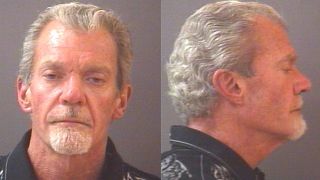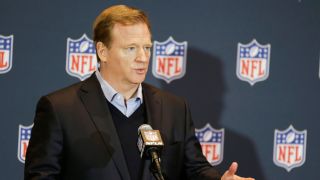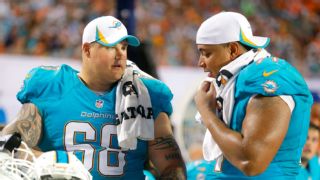|
Even in a legal system in which business disputes are as common as speeding tickets, this one was a doozy. It spanned 20 years and involved insanely wealthy men fighting over millions and millions of dollars. This past August, after more than 200 days of litigation, Superior Court Judge Deanne Wilson attempted to bring an end to the matter. From the bench in her packed Morristown, New Jersey, courtroom, she ruled that Joseph Wilf and his estate -- which includes son Zygi Wilf, owner of the Minnesota Vikings -- had breached their fiduciary responsibilities and defrauded their partners in a New Jersey real estate project known as Rachel Gardens. "[What was done in this case] was done not with a reckless but a willful disregard of the rights of the partners, Jarwick and Josef Halpern, and it was clearly not negligent," the judge said in her summary statement. "It was not even grossly negligent. It was grossly willful. And it was done repeatedly." The Wilfs are appealing the ruling.
Just before midnight March 17, a police officer noticed an SUV creeping along at about 10 mph in a 35 mph zone in an Indianapolis suburb.  The vehicle came to an unexplained stop before slowly taking off and stopping again in the middle of the lane, for no apparent reason. When the Toyota Highlander started off again and made a right turn without using a turn signal, the officer pulled over the driver, who happened to be Colts owner Jim Irsay. In the police report, the officer noted that Irsay's speech was "very slow and slurred." The officer also noted that he saw a prescription bottle; the report said "numerous prescription medication bottles containing pills" were found in the SUV before it was towed. Hours later, Irsay was booked into jail on one count of operating a vehicle while intoxicated and four counts of possession of a controlled substance. The 54-year-old owner, who the team says voluntarily checked into an undisclosed rehab facility days after the arrest, has yet to be formally charged.
In April 2013, documents were filed in federal court in Tennessee alleging fraud against the travel company belonging to Browns owner Jim Haslam. The papers said that, for "many years," sales employees of Flying Pilot J withheld fuel rebates and discounts from certain companies to increase the company's profitability, as well as their personal sales commissions. The affidavit also stated that FBI and IRS agents are investigating charges of conspiracy, mail fraud and wire fraud and claimed that Haslam was aware of the wrongdoing because he attended sales meetings at which the practice was discussed. The Browns owner, who was visiting the team's training facility at the time the document was unsealed, issued a statement that afternoon that read, in part: "I maintain that the foundation of this company is built on its integrity and that any willful wrongdoing by any employee of this company at any time is intolerable. ... I value the relationships we have with our customers, our vendors and our team members across this country and regret that they have to go through this with us, but I trust and believe their faith in this company and its principles has never been misplaced." Since then, at least three former employees have pleaded guilty to fraud-related activities. Haslam has not been charged, but the investigation is ongoing.
Three NFL owners, three separate incidents, no disciplinary action taken by commissioner Roger Goodell. It's against this backdrop that some players are privately questioning whether there's a double standard under the enhanced personal conduct policy Goodell instituted in 2007.  Faced with increasing headlines about player misconduct off the field, Goodell wanted to put everyone on notice that tarnishing the image of The Shield would not be tolerated. His warning was to owners and management, as well as players, with the explicit understanding that everyone is "subject to discipline, even [for] violations where the conduct itself does not result in conviction of a crime. Discipline may be imposed in any of the following circumstances: Criminal offenses including, but not limited to, those involving the use or threat of violence; domestic violence and other forms of partner abuse; theft and other property crimes; sex offenses; obstruction or resisting arrest; disorderly conduct; fraud; racketeering; and money laundering." Yet no action has been taken against Wilf, whom the judge characterized as "the self-described master chef" of his cousins' real estate endeavors, nor has any discipline been meted out against Haslam or Irsay. Which begs the question of whether there indeed is a double standard, or are players and critics blurring the line that separates on-field and off-field punishment? It's easy to lose sight of the line, considering how routinely players are fined or suspended during the season and how often we hear their names in the headlines. But the vast majority of those cases deal with on-field violations to the player safety policy or the policies for banned drugs and performance enhancers. Plus, there always are going to be more players disciplined under the personal conduct policy simply because of sheer numbers. There are nearly 2,000 active and practice-squad players during the season versus 31 owners (the Packers are publicly owned by shareholders). That alone will always make it appear that players are being disproportionately punished. But the reality is that the last known time Goodell suspended a player on an active roster under the personal conduct policy was in August 2012 -- two full seasons ago -- when he suspended wide receiver Kenny Britt, then with the Titans, for one game because of repeated brushes with law. As for owner discipline under the policy: He fined Dan Rooney $25,000 for criticizing the officials in 2006, Bud Adams $250,000 in 2009 for flipping off fans and Jerry Jones a reported $100,000 for violating a gag order during labor negotiations in 2011. He also has fined "teams" -- which ostensibly means owners -- for their involvement in Spygate and Bountygate and docked the Cowboys and Redskins for violating competitive guidelines in the uncapped year.  It's easy to say The Sheriff -- as Goodell became known because of his get-tough attitude -- has been quicker at pulling the trigger with players because of the foundation he laid early on under the policy. But a different story has been developing the past couple of years. For instance, he has yet to take action against Ravens running back Ray Rice, who was caught on video dragging his unconscious girlfriend out of an elevator after an alleged physical altercation. Nor has he disciplined 49ers linebacker Aldon Smith, who in the past two years has faced felony gun charges and been arrested for suspicion of DUI and marijuana possession and for making a false bomb threat in an airport. Are we seeing a kinder, gentler Goodell or a maturing commissioner who's more willing to think before he acts? I can't help but wonder whether his failed attempt to discipline players in the 2012 Saints bounty case might've caused him to take a step back and look in the mirror -- particularly after his predecessor, Paul Tagliabue (who'd been appointed by Goodell to handle the appeals), vacated the suspensions imposed on four players in that case and, in so many words, chided Goodell for coming off as power-hungry and inflexible. Whether by coincidence or persuasion, teams appear to be taking a greater lead when it comes to disciplining players or employees for off-field transgressions. It was the Dolphins who suspended guard Richie Incognito in last season's alleged bullying case involving tackle Jonathan Martin, and more recently cornerback Don Jones for an anti-Michael Sam tweet. It was the 49ers who over oversaw the disciplining of Smith after the outside linebacker was charged with suspicion of DUI and marijuana possession. It was the Broncos who suspended two executives after they were arrested on suspicion of DUI. It was the Eagles who fined Riley Cooper after he was recorded using racist language. If there's a reason Goodell might want to give the impression that he's not on a power trip, as Tagliabue insinuated, it could be that he badly wants to implement HGH testing but can't do so without the union's consent. To this point, the players' association has refused to sign off unless it gets neutral third-party arbitration on all appeals under the proposed policy. Because Goodell has been unwilling to surrender his authority as judge, jury and executioner, he continues to come off to some players as being more interested in using dictatorial tactics than in diplomacy. The NFLPA declined formal comment but acknowledged that players are carefully monitoring the situation and view owner discipline as a credibility issue. Some players privately point to the Irsay incident as an example of why they don't trust Goodell to be fair and objective. They say he would've already dropped the hammer if it had been a player in that situation. "Is there a double standard?" said league spokesman Greg Aiello. "Yes, it's a double standard that holds ownership and management to a higher standard. That's something that Roger has said repeatedly." Based on recent developments, it might be time for action instead of words.
|

